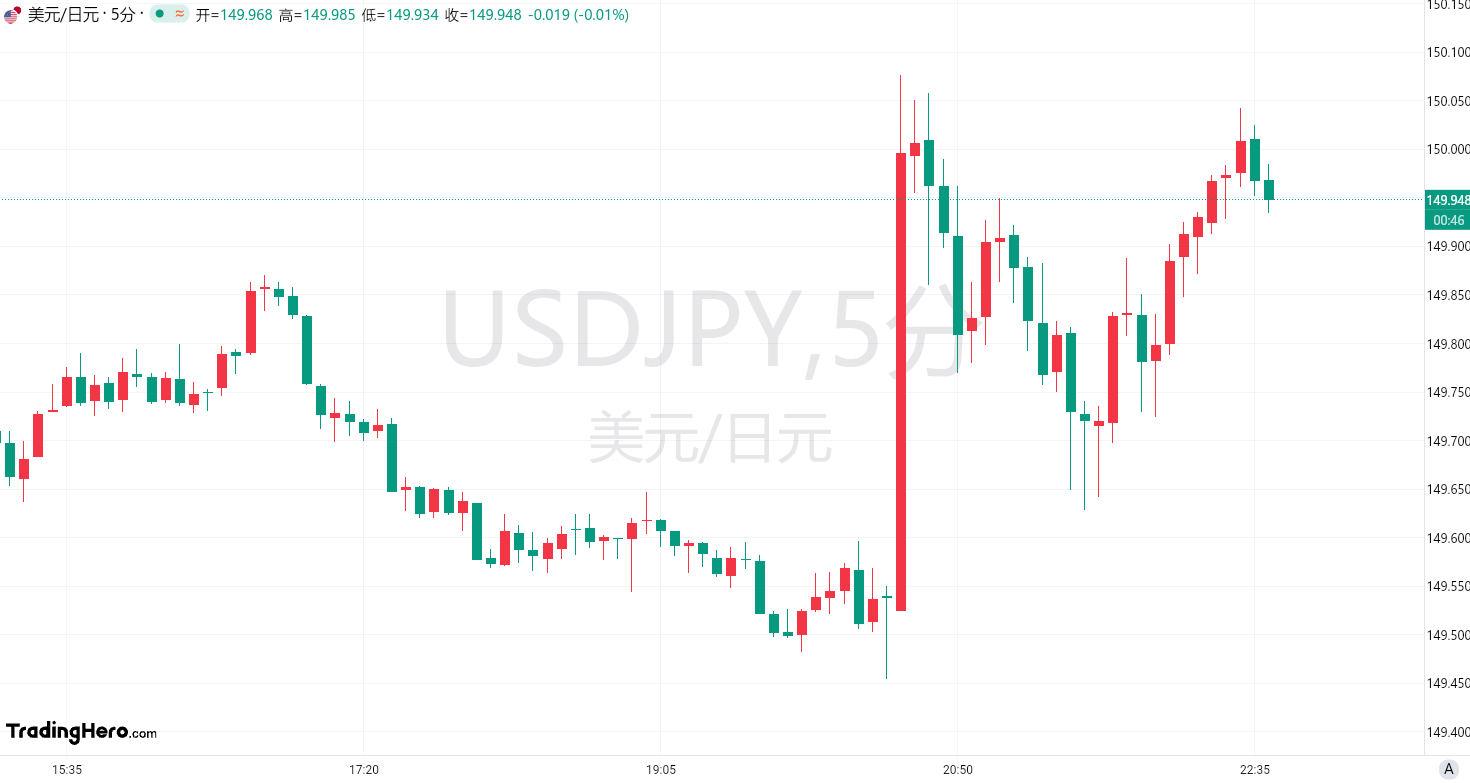The yen has reached a “dangerous zone”! Will the authorities take action this time around?
In the US market on Thursday, the dollar once rose above the critical psychological mark of 150 against the yen. Previously, strong US consumer spending and labor data caused traders to reduce their bets on the Fed's interest rate cut next year, driving the dollar stronger.
The US dollar once rose 0.3% against the yen to reach the 150 mark, the highest level since August 1. Continuing the two consecutive weeks of decline in the yen, investors recalibrated the rate at which the yield gap between Japan and the US was narrowing.

After the US released retail sales and unemployment benefits data on Thursday, the market expects the Fed to cut interest rates by only slightly more than two times by 25 basis points during the next three meetings.
Skylar Montgomery Koning, a foreign exchange strategist at Barclays Bank, said, “Due to strong US consumer performance, the US dollar generally rising, and the yen under pressure, the yen is a currency that underperforms well in a complex situation because strong US data is transmitted to the Federal Reserve's dovish decline and US yields rise.”
Recently, the Bank of Japan's monetary policy outlook has changed. The new prime minister, Shigeru Ishiwari, hinted earlier this month that Japan was not ready for higher interest rates, but he later retracted his statement, saying he was seeking consistency with the Bank of Japan.
Other data from the US shows that the US economy is still resilient, prompting the market to expect the pace of monetary policy easing by the Federal Reserve to slow down, which also puts pressure on the yen.
The yen's decline in October once again highlighted the risk of monetary intervention by Japanese officials. Japan's Finance Minister Katsushin Kato recently stated that sudden large fluctuations in the yen hurt businesses and households, and this impact requires government scrutiny. Japan's chief currency officer Atsushi Mimura also said that he is closely monitoring the foreign exchange market.
Investors are currently most concerned about arbitrage trading centered around the yen. Some strategists believe that the yen may depreciate further to the 150 level. Despite this, hedge funds were bullish on the yen for the week ending October 8, the highest level since the beginning of 2021, according to data from the US Commodity Futures Trading Commission. The weakening of the yen also occurred against the backdrop of rising domestic and foreign stock markets. The Japanese stock market is rising on the eve of the October 27th Japanese election.
Takafumi Onodera, who is responsible for sales and transactions at Mitsubishi UFJ Trust Bank in New York, said, “If the US data continues to be strong, then the yen could reach 153 before this month's election and the Federal Open Market Committee.”
Yusuke Miyairi, a foreign exchange strategist at Nomura Securities, said that the prospect of former US President Trump's election is another key risk facing the yen. Apart from the Federal Reserve's policy path and US data, Miyairi said, “Trump's victory may trigger a 'knee-jerk reaction' of the dollar against the yen because the market may acknowledge that his victory will increase inflation.”
 Index Options
Index Options CME Group
CME Group Nasdaq
Nasdaq Cboe
Cboe TradingView
TradingView Wall Street Journal
Wall Street Journal